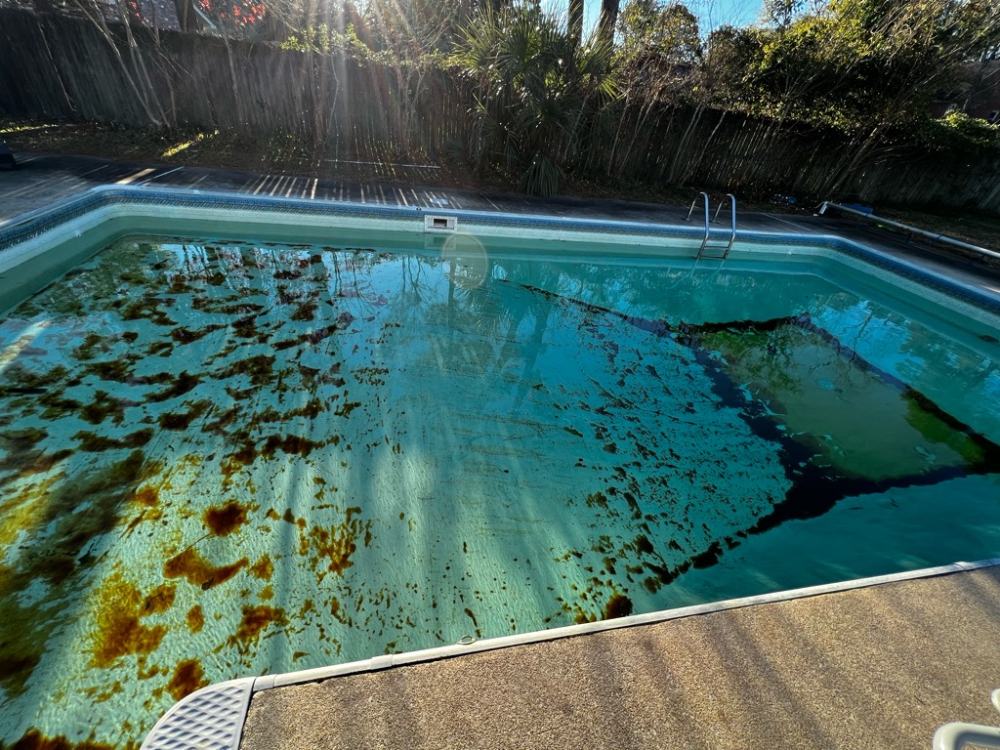How to Prevent Algae in Your Pool
Algae growth is one of the most common and frustrating issues pool owners face. It can turn your clear blue water into a green, cloudy mess and make swimming unsafe. Fortunately, with proper maintenance and preventative steps, you can keep algae from taking over your pool. Here’s how to keep your water clean, clear, and algae-free.

Maintain Proper Chlorine Levels
Chlorine is your pool’s first line of defense against algae. Keep your free chlorine levels between 1-3 ppm (parts per million) to effectively kill algae spores before they multiply. Test your water at least twice a week to ensure chlorine levels remain stable.
Brush and Vacuum Your Pool Regularly
Algae spores can cling to pool surfaces, especially in areas with poor circulation. To prevent buildup, first brush walls, steps, and corners at least once a week. Also, vacuum the pool floor to remove any debris or algae spores. Lastly, use a robotic pool cleaner for extra efficiency.
Keep Your Pool Water Circulating
Stagnant water is a breeding ground for algae. Run your pool pump at least 8-12 hours a day to ensure water is properly circulated and filtered. If you have a variable-speed pump, running it for longer periods at a lower speed improves efficiency.
Balance Your Pool Chemistry
Algae thrives in imbalanced water. Keep these levels in check: pH: 7.2–7.6, alkalinity: 80–120 ppm, cyanuric acid (stabilizer): 30–50 ppm, and calcium Hardness: 200–400 ppm. Test and adjust your pool chemistry weekly to prevent conditions that encourage algae growth.
Shock Your Pool Regularly
Even if your chlorine levels are within range, shocking your pool every 1-2 weeks helps destroy algae spores and other contaminants. Use a calcium hypochlorite shock or a non-chlorine oxidizer depending on your pool type.
Use an Algaecide as a Preventative Measure
Adding an algaecide to your pool water once a week can help prevent algae from taking hold. Look for a non-foaming, long-lasting algaecide to keep your water clear without affecting swimmers.
Clean Your Pool Filter Regularly
A dirty filter can allow algae spores to circulate back into your pool. To keep your filtration system working efficiently: backwash your sand or DE filter when the pressure gauge rises 8-10 psi above normal and clean cartridge filters monthly or as needed.
Keep an Eye on Phosphates
Phosphates are a food source for algae. Leaves, pollen, and other organic debris can introduce phosphates into your pool water. Use a phosphate remover if levels get too high to reduce the risk of algae blooms.
Need Help Keeping Your Pool Algae-Free?